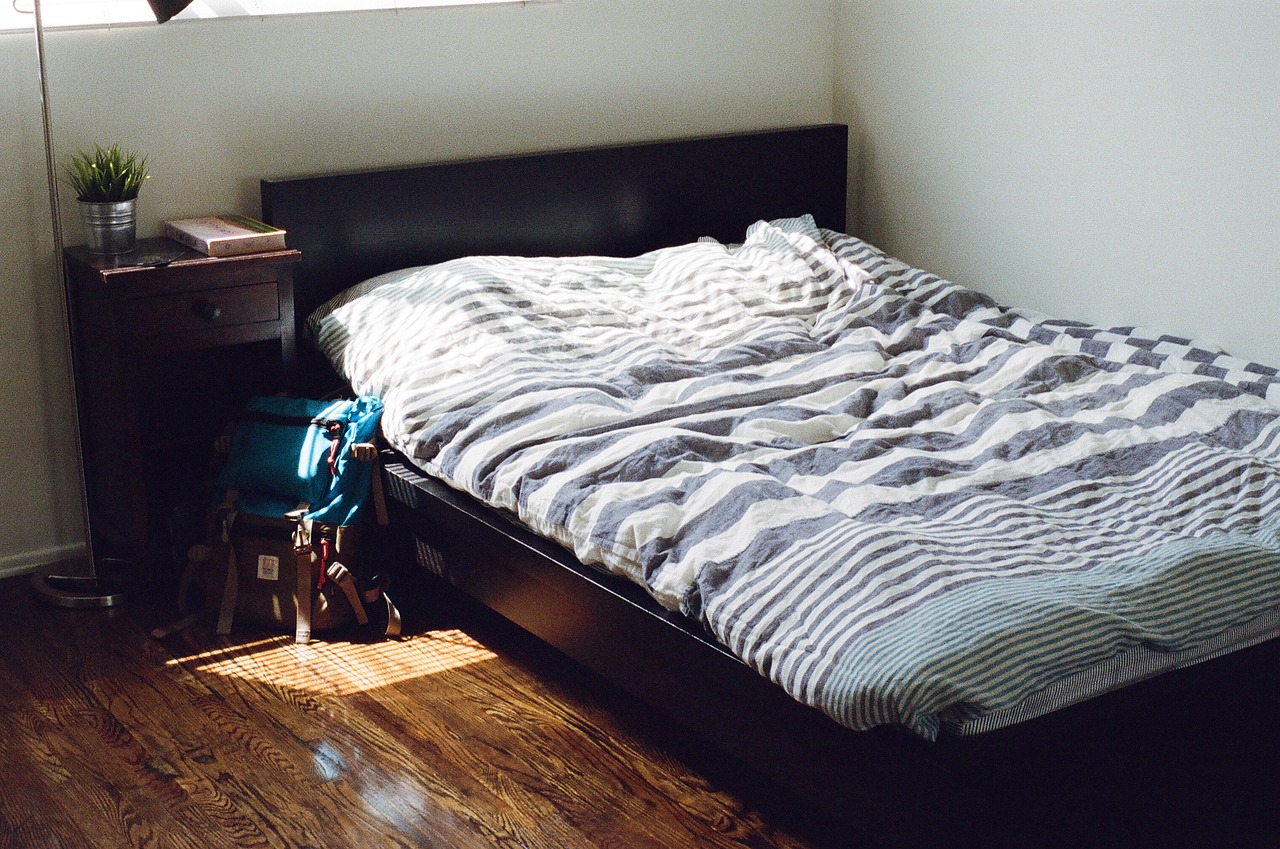You love sharing your bed with some company, right? Well, what if we told you that bed bugs could be that company? These tiny vampires could be lurking in the folds of your sheets, waiting for the perfect moment to feast on your blood. And guess what? They don’t just affect you; they can infest your entire apartment complex. That’s why it’s crucial for both tenants and landlords to work together to control bed bugs.
If you’re a tenant, you might be thinking, ‘Why should I care about the landlord’s bed bug problem?’ But let’s face it, bed bugs don’t discriminate. They’ll bite anyone and everyone who comes into contact with them. Plus, if your landlord doesn’t take care of the problem, the infestation could spread to your unit, and you’ll be stuck dealing with it on your own.
That’s why it’s essential to work together to prevent and treat bed bug infestations.
The Dangers of Bed Bugs in Rental Properties
It’s crucial to understand the risks of bed bugs in rental properties. Bed bugs are not just a nuisance, but they can also pose serious health consequences to tenants. These pests feed on human blood, causing itchy bites that can lead to infection and allergic reactions. Moreover, bed bugs can carry diseases, making them a potential health hazard.
As a landlord, it’s not only your moral obligation to keep your tenants safe, but it’s also your legal responsibility. According to the law, landlords are responsible for providing a habitable living environment for their tenants, which includes being free of bed bugs. If a tenant suffers from bed bugs due to the landlord’s negligence, the landlord can be held liable for any damages, including medical bills and compensation for pain and suffering.
Therefore, it’s important for tenants and landlords to work together to prevent and control bed bugs in rental properties.
The Risks of Inadequate Bed Bug Control
If you don’t take the necessary steps to address a bed bug infestation, you run the risk of allowing these resilient pests to spread throughout your living space and potentially even to neighboring units.
Bed bugs can travel through walls and electrical outlets, making it easy for them to move from one apartment to another. This means that if you don’t cooperate with your landlord to control bed bugs, you could be putting yourself and your neighbors at risk of a serious infestation.
In addition to the health consequences of a bed bug infestation, inadequate bed bug control can also be a significant financial burden. Bed bugs can quickly multiply and spread, making it difficult and expensive to get rid of them.
If an infestation becomes severe, you may need to replace furniture and bedding, pay for professional extermination services, and even temporarily relocate while your apartment is treated.
By working together with your landlord to control bed bugs, you can avoid these costs and ensure that your living environment remains safe and healthy for everyone.
The Need for Open Communication between Tenants and Landlords
To keep your living space healthy and safe for you and your neighbors, it’s crucial that you communicate openly with your landlord about any pest issues that arise.
When it comes to bed bugs, it’s important to remember that tenant rights and landlord responsibilities go hand in hand. While tenants have the right to live in a pest-free environment, landlords have the responsibility to ensure that their properties are free from bed bugs and other pests.
By working together and keeping an open line of communication, tenants and landlords can prevent bed bug infestations from getting out of control. Tenants should report any signs of bed bugs to their landlord immediately, and landlords should respond promptly by inspecting the unit, treating any infestations, and taking preventative measures to prevent future infestations.
Ultimately, the key to successful bed bug control is cooperation between tenants and landlords.
Steps for Effective Bed Bug Prevention and Treatment
You can keep your living space safe and healthy by taking proactive steps to prevent and treat bed bug infestations.
Bed bug detection is the first step in preventing and treating an infestation. Regularly inspect your living space, paying close attention to areas where bed bugs are likely to hide, such as the seams of your mattress, box spring, and furniture.
If you notice any signs of bed bugs, such as rusty or reddish stains on your sheets or mattress, or tiny brownish insects on your furniture or clothing, act fast and notify your landlord immediately.
Professional extermination is often necessary to effectively treat bed bug infestations. Once you have notified your landlord, they should arrange for a professional exterminator to inspect and treat your living space.
The exterminator will use a combination of techniques, including heat treatment, vacuuming, and insecticide application, to eradicate the bed bugs. To ensure the effectiveness of the treatment, follow the exterminator’s instructions carefully, and cooperate fully with your landlord by allowing access to your living space for follow-up inspections and treatments.
By working together, you can effectively prevent and treat bed bug infestations, keeping your living space safe and comfortable for all.
Benefits of Cooperative Efforts for Bed Bug Control
Cooperative efforts between residents and professionals are crucial for successful management of bed bug infestations. Studies show that collaboration can significantly reduce the time and cost of treatments.
Collaborative strategies involve both parties working together to identify and address the root cause of the infestation, including proper sanitation practices, clutter reduction, and sealing cracks and crevices. Shared responsibility also means that residents should promptly report any signs of bed bugs to their landlords, allowing for early detection and intervention.
Furthermore, tenant-landlord cooperation can help prevent the spread of bed bugs to neighboring units, reducing the risk of re-infestation. Landlords can provide education and resources to help residents identify and prevent bed bug infestations, while residents can take proactive measures such as regularly inspecting their belongings and washing and drying their bedding and clothes on high heat.
By working together, residents and professionals can create a safer and healthier living environment for everyone involved.
Frequently Asked Questions
What are the common signs of a bed bug infestation in a rental property?
If you suspect bed bugs in your rental property, it’s important to act quickly to prevent the infestation from spreading. Early detection is key, so look out for common signs such as small reddish-brown bugs, their shed skins, and tiny white eggs.
You may also notice blood spots on your bedding or furniture, or experience unexplained bites on your skin. Identifying infestations early on can save you and your landlord time, money, and hassle in the long run.
Don’t hesitate to report any signs of bed bugs to your landlord or property manager, and work together to address the issue before it gets out of hand.

Can tenants be held responsible for the cost of bed bug treatments in their rental unit?
You may be wondering whether you, as a tenant, could be held responsible for the cost of bed bug treatments in your rental unit. The answer is that it depends on the circumstances.
In some cases, landlords may be responsible for covering the cost of treatment if the infestation was already present when you moved in or if they failed to take reasonable steps to prevent it. However, if you brought the bed bugs into the unit, you may be responsible for paying for the treatment.
In any case, it’s important for tenant-landlord cooperation to exist in order to effectively control bed bug infestations and prevent their spread to other units. By working together, both parties can take steps to prevent and eradicate bed bugs, and ensure a comfortable living environment for all tenants.
What are the long-term health effects of bed bug bites on humans?
If you’ve ever experienced bed bug bites, you may be wondering about the potential long-term health effects. While bed bugs themselves aren’t known to transmit diseases to humans, their bites can cause a range of reactions. Some people may have no reaction at all, while others may experience redness, itching, and swelling.
In rare cases, prolonged scratching can lead to skin infections. Additionally, some individuals may develop an allergic reaction to bed bug bites, which can cause more severe symptoms like difficulty breathing or anaphylaxis.
While the long-term health effects of bed bug bites are not fully understood, it’s important to take steps to prevent infestations and seek treatment if you suspect you’ve been bitten.
How can landlords ensure that their bed bug control measures are effective and long-lasting?
You’re a landlord who’s just discovered bed bugs in one of your units. You’re already dreading the hassle of getting rid of them, but what’s even worse is the possibility of them coming back.
You know that bed bug control is not a one-time fix, but a continuous effort. That’s why collaborative efforts and communication strategies are crucial in ensuring that your bed bug control measures are effective and long-lasting.
You need to work with your tenants to identify the source of the infestation, educate them on prevention measures, and collaborate on treatment plans. It may seem like a hassle, but it’s much better than dealing with recurring bed bug infestations.
Are there any natural remedies or DIY methods that tenants can use to prevent or treat bed bug infestations in their rental unit?
If you’re dealing with a bed bug infestation in your rental unit, there are some natural remedies and DIY methods you can try to prevent or treat the problem.
For prevention, regularly washing your bedding and vacuuming your floors can help eliminate any potential hiding spots for bed bugs. You can also try using essential oils like lavender or tea tree oil as a natural repellent.
If you do end up with an infestation, some DIY methods include using a bed bug spray made from rubbing alcohol and water or applying diatomaceous earth around your bed and furniture.
While these methods may help in the short term, it’s important to also communicate with your landlord and work together to properly address the issue and prevent future infestations.
Conclusion
So, you now understand the importance of cooperation between tenants and landlords in controlling bed bugs. By openly communicating and working together, both parties can take necessary measures to prevent and treat bed bug infestations.
Remember, the risks of inadequate bed bug control can be severe, including health issues and financial losses.
Now, you may be thinking, “But what if my landlord is unresponsive or unwilling to cooperate?” While this can be a frustrating situation, it’s important to remember that as a tenant, you do have legal rights.
Contacting local housing authorities or seeking legal advice may be necessary if your landlord is not fulfilling their responsibilities. Don’t let the fear of confrontation or lack of resources prevent you from taking action to protect yourself and your living space from bed bugs.
In the end, it’s worth the effort to achieve a pest-free home.










